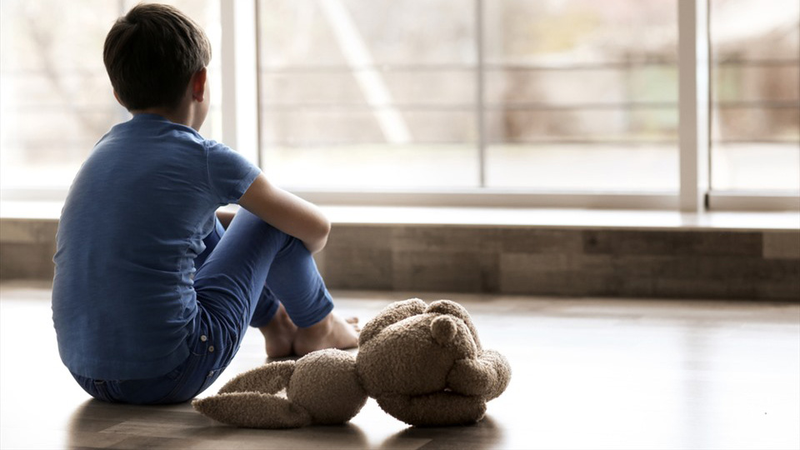Authoritarian parenting is a widely recognized parenting style characterized by strict rules, high expectations, and a lack of emotional warmth.
Developmental psychologist Diana Baumrind defines authoritarian parenting as a style in which parents place more importance on control and discipline than on nurturing independence or emotional well-being. In fact, authoritarian parenting is common in many families, and children raised in this environment will develop personality traits and lifestyles that reflect the nature of this parenting style.
Characteristics of Authoritarian Parenting
One of the main characteristics of authoritarian parenting is a focus on rules. Parents who follow this style tend to set many rules that children must follow, both at home and outside of the home. These rules are very rigid and in some cases, there are vague “unwritten” rules that children are expected to follow without clear explanation.

Authoritarian parents often force their children to obey many rules they set.
In families with authoritarian parents, emotional support and understanding often take a back seat to discipline. Parents tend to appear distant and cold, focusing on their children’s compliance with rules rather than their children’s emotional or physical well-being. Encouragement is rarely expressed, and instead, authoritarian parents often resort to scolding or nagging, placing more importance on discipline than on their children’s well-being.
Another characteristic of authoritarian parenting is the use of harsh punishment to correct mistakes. Physical punishment, such as spanking, is often used as a means of enforcing rules. Instead of using constructive or positive discipline, authoritarian parents react harshly when their expectations are not met, causing the child to become fearful and forced to comply.
Children raised with authoritarian parenting often find themselves with little or no autonomy. Parents give children choices with strict rules that are set without explanation. Children simply follow rules that they sometimes do not fully understand, without the right to protest or question. This lack of autonomy gradually hinders children’s ability to develop critical thinking and decision-making skills because they are not given the opportunity to make choices or learn from their mistakes.
Authoritarian parents are often impatient when their children make mistakes. They expect near-perfection from their children and do not take the time to explain rules or consequences. This impatience can leave children feeling misunderstood, isolated, and afraid of making mistakes.
A common trait of authoritarian parenting is constant control over a child’s behavior. Authoritarian parents often do not trust their children to make their own decisions. They closely monitor their children’s actions to prevent mistakes, leaving them little room to learn responsibility or self-regulation. This stunts their ability to grow into confident, independent adults.

Authoritarian parents easily make children lose confidence.
Another notable aspect of authoritarian parenting is that children are not given the opportunity to express themselves or argue their point of view. In an authoritarian household, parents see things in black and white, right or wrong, with no room for negotiation. Children’s opinions are often ignored and they are not allowed to voice their concerns or participate in decisions.
Authoritarian parents also often criticize their children, using demeaning phrases such as “Why can’t you ever do anything right?” or “Why do you always do that?” This can have a negative impact on a child’s self-esteem, leaving them feeling inadequate and emotionally damaged.
Causes of Authoritarian Parenting
Authoritarian parents often set strict rules, have high expectations, and are emotionally disconnected, often unintentionally, from their children. So what causes authoritarian parents to choose this method of education?
An important cause of authoritarian parenting is the environment in which parents were raised. Many authoritarian parents themselves were subjected to strict, controlling parenting. It is the parents’ childhood experiences that shape their views on discipline and parenting, and they “copy” similar models with their own children. Studies show that people who were raised in authoritarian families are more likely to continue this approach in raising their own children. It is worth noting that authoritarian parents often do not realize the long-term effects that this method can have on their children’s development.
In addition, individual personality traits also play an important role in forming authoritarian parenting. Research shows that parents with strong, dominant, or harsh personalities are more likely to use this rigid approach on their children. In particular, hot-tempered parents often have difficulty empathizing with others, including their children. Authoritarian parents’ limited emotional awareness and hot temper can lead to harsher, more controlling parenting behaviors. This lack of empathy creates barriers in the parent-child relationship, making open communication and emotional bonding more difficult.

Lack of empathy in education will weaken children’s mental health
In addition to personality, mental health and neurological factors also contribute significantly to authoritarian parenting. According to research, parents with unresolved neurological issues, such as anxiety, emotional instability or depression, are more likely to be authoritarian in their parenting style. Emotional instability and mental health difficulties can lead parents to over-control their children’s actions, often stemming from their own fears, doubts and insecurities. Concerns about their child’s behavior, combined with the need to maintain control, lead parents to impose strict rules and high expectations without considering their child’s emotional needs.
Tips for Avoiding Authoritarian Parenting
If you were raised by an authoritarian parent and are concerned that you may be repeating this pattern with your own children, here are some helpful tips:
Learn about parenting styles
Learn and learn more about parenting methods, especially authoritative versus authoritarian parenting. The more you understand about different parenting styles, the more you will understand what is best for your child’s development. Before adopting a parenting method, make sure you are fully equipped with knowledge.
Listen and empathize with your child
Listening to your child without reacting impatiently or interrupting will help them feel respected and understood. In addition, listening and empathizing also helps children learn to recognize and manage their emotions, thereby promoting greater independence and confidence.
Set clear family rules
Parents should set specific rules in the family and make sure that everyone, including children, understands them. When children understand the reasons behind the rules, it will be easier to follow them, and they will also understand the consequences if they break them.
Discipline appropriately, avoid using physical punishment
Instead of punishing children with physical punishment or shaming them, parents should find ways to discipline that are appropriate to their children’s age and personality. Discipline should be constructive, helping children realize their mistakes and learn to correct them.

Do not use whips when disciplining children.
Seek professional help
If parents are concerned about their parenting style, taking parenting classes or seeking professional help is a good option. This will help you gain a better understanding of the skills and strategies in raising your child.
In short, authoritarian parenting can have negative consequences if not properly managed. While discipline is essential in raising children, when applied without empathy, understanding, and flexibility, it can easily lead to negative consequences for children. Understanding the characteristics of authoritarian parenting as well as tips on how to avoid authoritarian parenting will help parents realize early on the importance of balancing discipline with emotional support, promoting a healthier relationship with their children.





